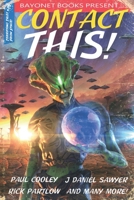Una bolsa de plástico (One Plastic Bag): Isatou Ceesay y las mujeres recicladoras de Gambia
Select Format
Select Condition 
Book Overview
En Njau, Gambia, las bolsas de pl stico se apilaban en montones horribles al costado de los caminos. El agua se estancaba en ellas y atra a mosquitos y enfermedades. Mataban el ganado que intentaba comerlas. Algo ten a que cambiar.
Isatou Ceesay fue ese cambio. Encontr una manera de reciclar las bolsas y transformar su comunidad. Esta historia real motivadora muestra c mo las acciones de una persona pueden hacer una diferencia verdadera en nuestro mundo.
"Texto simple pero l rico, que narra este relato hermoso que invita a la reflexi n sobre la conciencia ecol gica y el reciclado . . . Una historia inspiradora."
--starred, School Library Journal
The inspiring true story of how one African woman began a movement to recycle the plastic bags that were polluting her community.
Plastic bags are cheap and easy to use. But what happens when a bag breaks or is no longer needed? In Njau, Gambia, people simply dropped the bags and went on their way. One plastic bag became two. Then ten. Then a hundred.
The bags accumulated in ugly heaps alongside roads. Water pooled in them, bringing mosquitoes and disease. Some bags were burned, leaving behind a terrible smell. Some were buried, but they strangled gardens. They killed livestock that tried to eat them. Something had to change.
Isatou Ceesay was that change. She found a way to recycle the bags and transform her community. This inspirational true story, now available in Spanish, shows how one person's actions really can make a difference in our world.
Related Subjects
20th Century Americas Biographies Historical History Military Modern (16th-21st Centuries)Customer Reviews
Rated 5 starsHuman spirit, determination
An enticing read of how the Mormon pioneers traversed the plains from Iowa to Salt Lake City in simple hand-crafted carts from 1856-1860. Beginning in Europe, once these destitute, insolvent individuals landed in America, they pulled and pushed their way 1200 miles to the land of Zion. While eight out of the ten handcart companies were sufficiently successful, but still with their own pains and sufferings, the center of attention...
0Report
Rated 4 starsA good account of the handcart migration to Utah
When we think of people migrating westward in the 19th century, we tend to think of covered wagons rolling along the Oregon trail. What many of us don't realize is that many people made the trek by handcart--small, wooden carts that they themselves pulled all the way west. These carts, though they had to be pulled by hand, were often able to make the trip in substantially less time than were covered wagons--and at a fraction...
0Report











![Paperback Una Bolsa de Plástico (One Plastic Bag): Isatou Ceesay Y Las Mujeres Recicladoras de Gambia (Isatou Ceesay and the Recycling Women of the Gambia) [Spanish] Book](https://i.thriftbooks.com/api/imagehandler/m/8E2D1FF3BB25AEC1730AFC2B1879D4DB8573A6B3.jpeg)




























